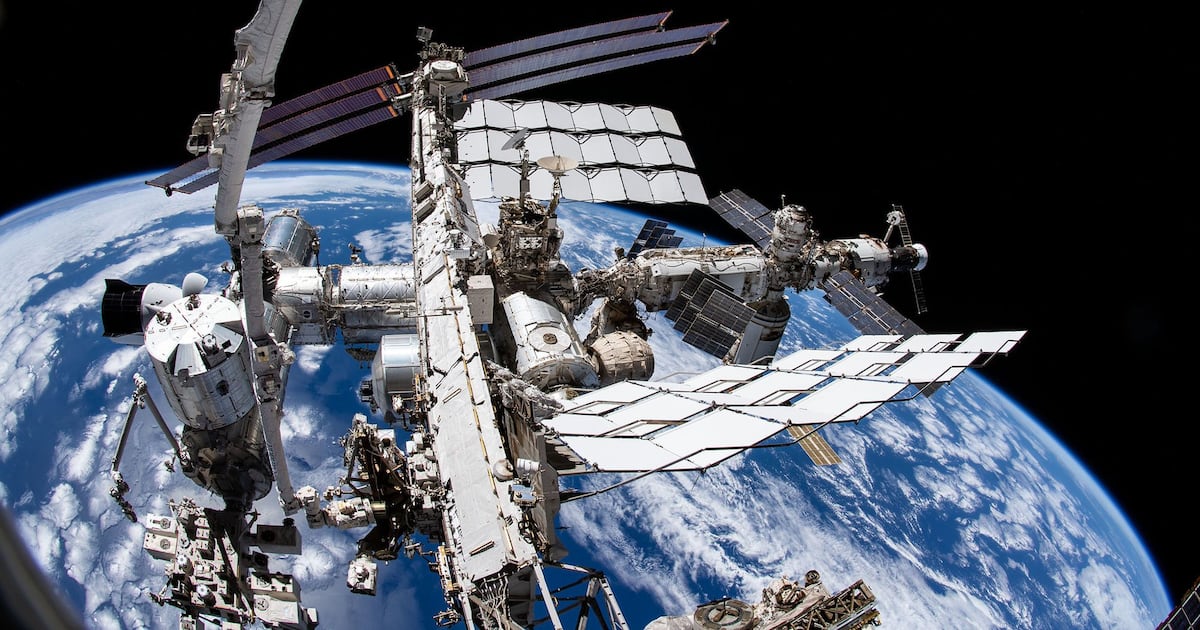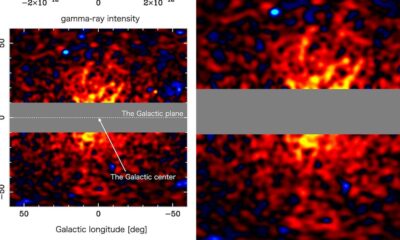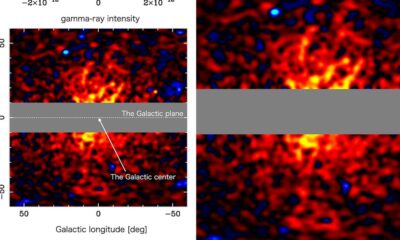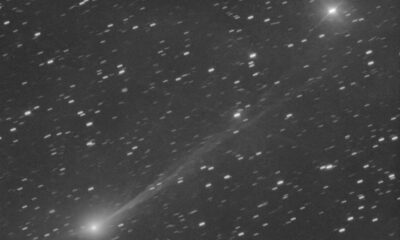Science
Study Reveals Spaceflight Accelerates Aging in Human Stem Cells

Research has unveiled that spaceflight accelerates the aging process in human stem cells, according to a study published on March 14, 2024, in the journal Cell Stem Cell. This significant study enhances scientists’ understanding of how space exploration impacts the human body, particularly the functioning of stem cells, which play a vital role in regenerating and repairing various tissues.
Lead author Catriona Jamieson, director of the Sanford Stem Cell Institute and professor of medicine at the University of California, San Diego, stated, “In space, stem cells decline in function. They actually reduce their ability to renew themselves or regenerate, and that’s an important thing to be able to know for long-term space missions.” The research was partially funded by NASA and conducted during four resupply missions to the International Space Station by SpaceX between late 2021 and early 2023.
This study marks the first examination of stem cell behavior in real-time under the conditions of low Earth orbit. “It’s important to study stem cell health and see who’s likely to withstand the rigors of space,” Jamieson noted, emphasizing that the stress of space travel can have significant implications for astronaut health.
Investigating the effects of microgravity, the research team analyzed bone marrow stem cells from patients undergoing hip replacement surgery. The cells were placed on a sterile sponge matrix within bioreactors designed for space conditions. These bioreactors, comparable in size to a mobile phone, allowed for continuous monitoring by an artificial intelligence system. Jamieson explained that normally, stem cells are inactive 80 percent of the time to maintain optimal function. However, in the microgravity environment, the cells became overly active, leading to functional exhaustion.
“The stem cells woke up, and they didn’t go back to sleep, and they became functionally exhausted,” she added. This change in activity has dire consequences. The study indicated that some stem cells experienced spaceflight for up to 45 days, resulting in accelerated aging due to depleted energy reserves and diminished capacity for cell generation.
Moreover, the researchers found that under stress, these stem cells began to activate dormant sections of DNA known as “dark genome” elements. Jamieson described these elements as remnants of ancient retroviruses that constitute nearly 55 percent of human DNA. “They send the stem cells into a death spiral,” she explained, noting that this phenomenon is similar to the stress observed in patients with preleukemic disorders.
Jamieson has participated in nine space missions and is already planning further studies to explore potential countermeasures against this accelerated aging process. She remarked, “We can actually use these bioreactors to predict who’s likely to do well and who’s likely to do extremely badly in space…and develop countermeasures.” Upcoming clinical trials may investigate medications aimed at mitigating the effects of this “dark genome” activity.
Preliminary findings from a separate study suggest that stem cells may recover from accelerated aging after astronauts return to Earth, although this recovery could take about a year. The implications of this research extend beyond space travel; it may also benefit cancer patients whose stem cells display similar stress-related damage.
For astronauts, these findings raise concerns about the potential weakening of blood and immune systems during long missions, increasing health risks. Arun Sharma, a stem cell biologist and associate professor at Cedars-Sinai Medical Center, emphasized that the study could enhance understanding of the aging process and contribute to new therapies aimed at slowing or reversing it.
The research highlights the potential damage radiation exposure and microgravity can inflict on stem cells, underscoring health risks associated with extended space expeditions. Luis Villa-Diaz, an assistant professor at Oakland University, remarked, “Knowing the potential negative effects that low Earth orbit has on stem cell aging and function gives us directions to address these issues and develop strategies to prevent or counteract these effects.”
While previous studies hinted at vulnerabilities in stem cells due to space conditions, this latest research provides robust evidence of accelerated aging. Elena Kozlova, a professor at the University of Uppsala in Sweden, noted that not all studies agree on the effects of spaceflight on stem cells. Her research indicated that some stem cell populations might even experience growth-associated gene activation in microgravity, suggesting that certain conditions could promote a more youthful state.
As scientists continue to investigate the implications of space on human health, this study serves as a crucial step toward understanding how to protect astronauts and improve their resilience during long-duration missions.
-

 Politics1 month ago
Politics1 month agoSecwepemc First Nation Seeks Aboriginal Title Over Kamloops Area
-

 World5 months ago
World5 months agoScientists Unearth Ancient Antarctic Ice to Unlock Climate Secrets
-

 Entertainment5 months ago
Entertainment5 months agoTrump and McCormick to Announce $70 Billion Energy Investments
-

 Science5 months ago
Science5 months agoFour Astronauts Return to Earth After International Space Station Mission
-

 Lifestyle5 months ago
Lifestyle5 months agoTransLink Launches Food Truck Program to Boost Revenue in Vancouver
-

 Technology3 months ago
Technology3 months agoApple Notes Enhances Functionality with Markdown Support in macOS 26
-

 Lifestyle3 months ago
Lifestyle3 months agoManitoba’s Burger Champion Shines Again Amid Dining Innovations
-

 Top Stories2 months ago
Top Stories2 months agoUrgent Update: Fatal Crash on Highway 99 Claims Life of Pitt Meadows Man
-

 Top Stories2 weeks ago
Top Stories2 weeks agoHomemade Houseboat ‘Neverlanding’ Captivates Lake Huron Voyagers
-

 Politics4 months ago
Politics4 months agoUkrainian Tennis Star Elina Svitolina Faces Death Threats Online
-

 Sports5 months ago
Sports5 months agoSearch Underway for Missing Hunter Amid Hokkaido Bear Emergency
-

 Politics5 months ago
Politics5 months agoCarney Engages First Nations Leaders at Development Law Summit




















